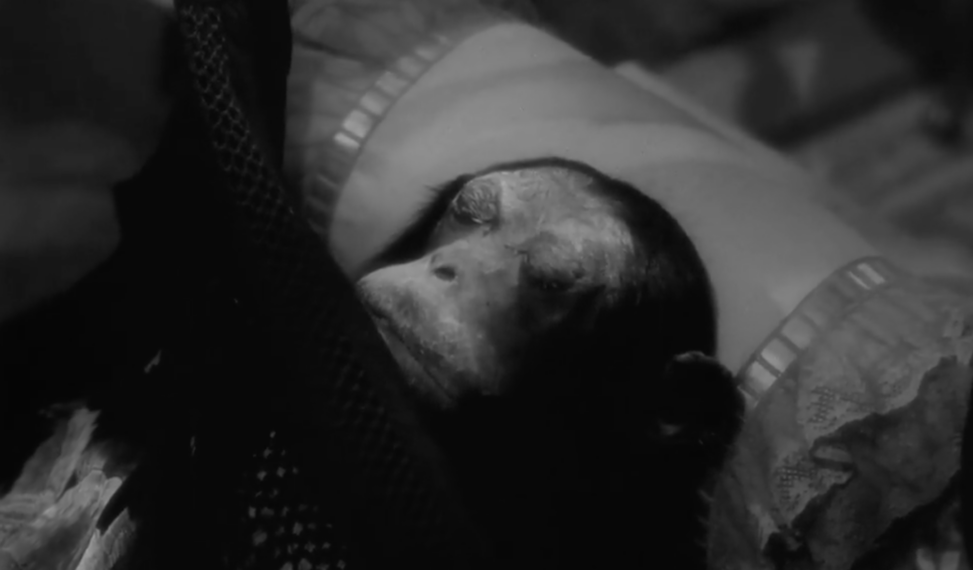In the film “Sunset Boulevard”, directed by Billy Wilder in 1950, we are introduced to the aspiring writer Joe Gillis, who becomes entangled in the world of the silent Hollywood star, Norma Desmond. When Joe first encounters her, Norma mistakes him for the coffin maker she has been expecting. Norma’s pet chimpanzee has just passed away, and she wanted to get a quote for a coffin. Joe, following along without fully understanding the situation, leans in and discovers the Deceased Chimpanzee. It’s only when Joe realizes that this woman is Norma Desmond that he becomes interested in what she could offer him, given her connections in the industry. In the article “Pass the Salt … and Other Bits of Business” (2011), Christian Keathley discusses the importance of James Naremore’s feature film performance: ‘the business.’ He notes that “If the script does not actually call for some combination of doing and talking, the better actors usually try to invent business, or they sometimes use the simplest action as a rhythmic counterpoint to speech” (105). This involves using another character, prop, or object to enhance subtle communication in a scene. In this case, the character of the Deceased Chimpanzee provides us with a window into the world of Norma Desmond, offering a direct reflection of Hollywood’s eccentricity. Furthermore, Keathley deep-dives into some examples pertaining business, “Though it may not seem like it on first viewing, this small scene is crucial to the dramatic development of both these characters and their relationship, and for its establishment of one level of suspense that remains unabated for the duration of the film”. (108) This is the perfect introduction to Norma Desmond. If her character is established right from the beginning with such high standards as wanting to have a custom-made coffin for her deceased chimpanzee pet, there is not much that, as a viewer, we won’t allow Norma Desmond to get away with. We become desensitized to the Hollywood lifestyle, normalizing its unconventional habits without further questioning. In contrast to someone like Joe, who is clearly amazed by the situation, taking Keathley’s theory into practice, “[The chimpanzee] serves as the expressive object – and the bit of business – […] [Norma and Joe] are set up as equals, balanced evenly in the frame for the duration of the scene. But they are also set up as opposed to one another – Parnell more ‘open’, Biegler more careful and cautious – in certain respects through the scene’s various elements of design”. (110) Since we understand both of the performers’ personal and fictitious situations, the Deceased Chimpanzee is a carefully selected blend of a minor character, business, and prop. It enables us to immerse ourselves in the Hollywood universe and reveals more about Norma Desmond in a matter of minutes than any dialogue could have conveyed. Not only does it provide insight into the star system culture, but it also ignites Joe’s interest in Norma’s ‘business’ before she even considers making an offer.
WORKS CITED
Sunset Boulevard. Directed by Billy Wilder, Paramount Pictures, 1950.
Christian Keathley, “Pass the salt … and other bits of business”, Screen, Volume 52, Issue 1, Spring 2011, Pages 105–113, https://doi.org/10.1093/screen/hjq065

Provide Feedback